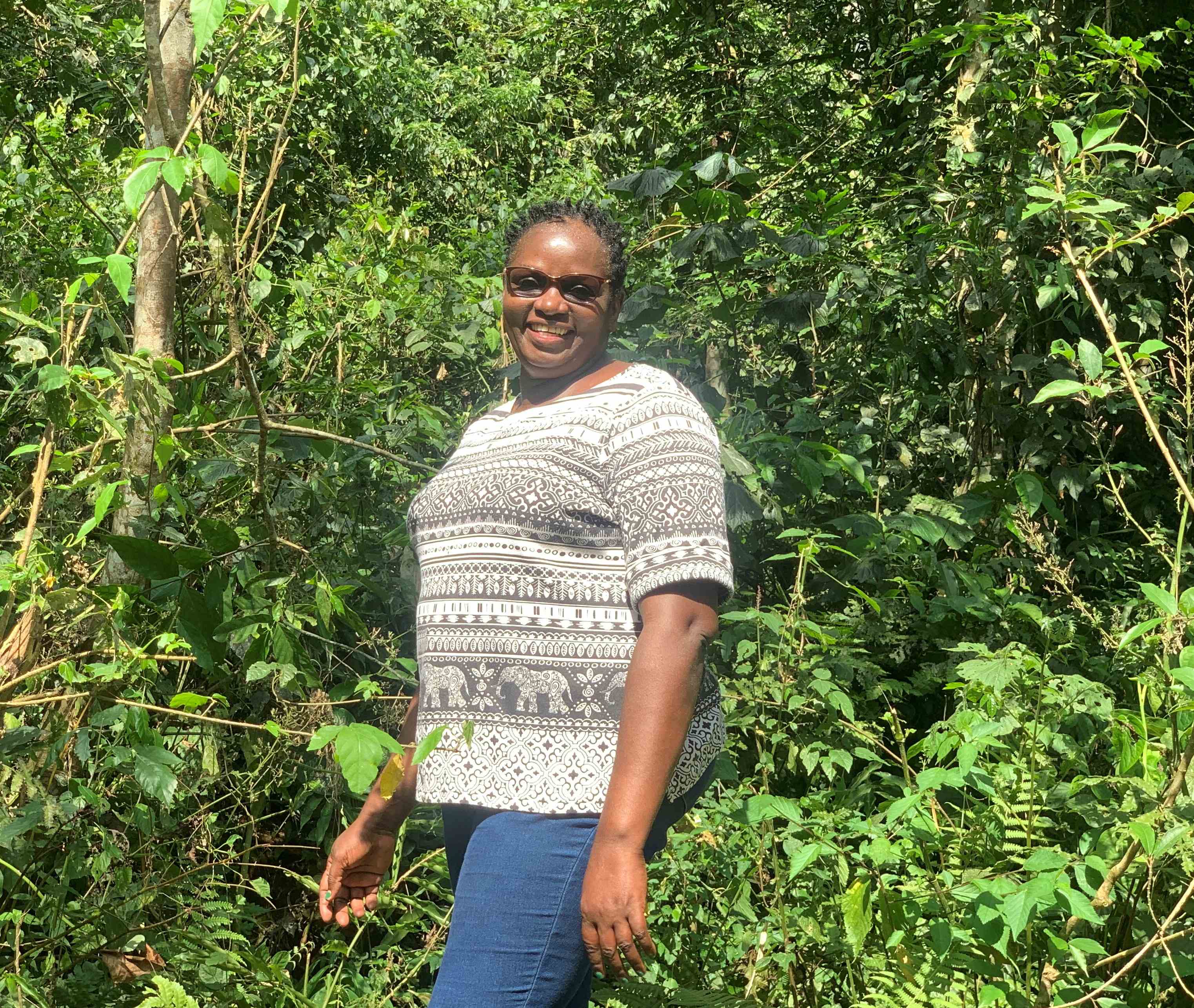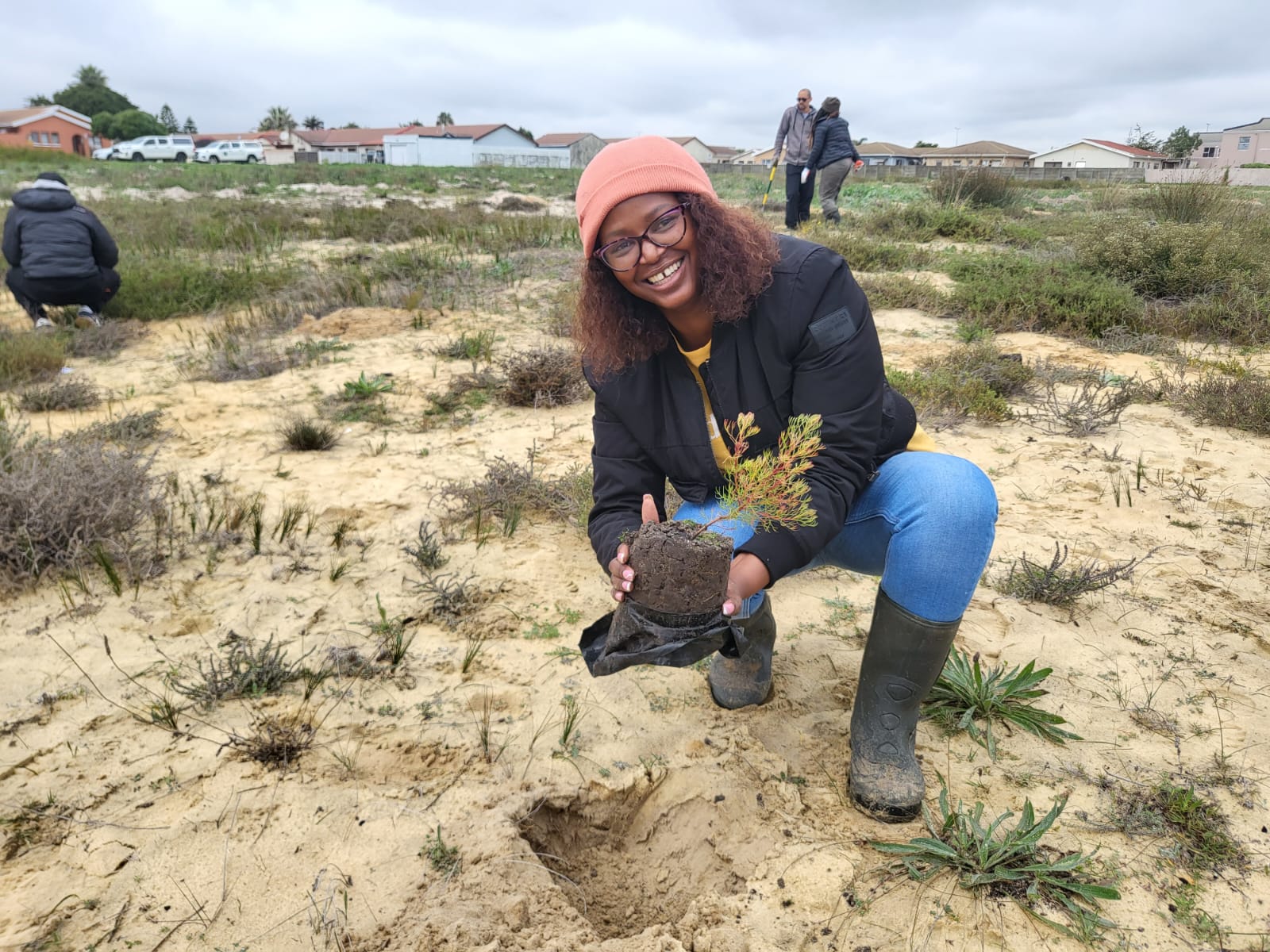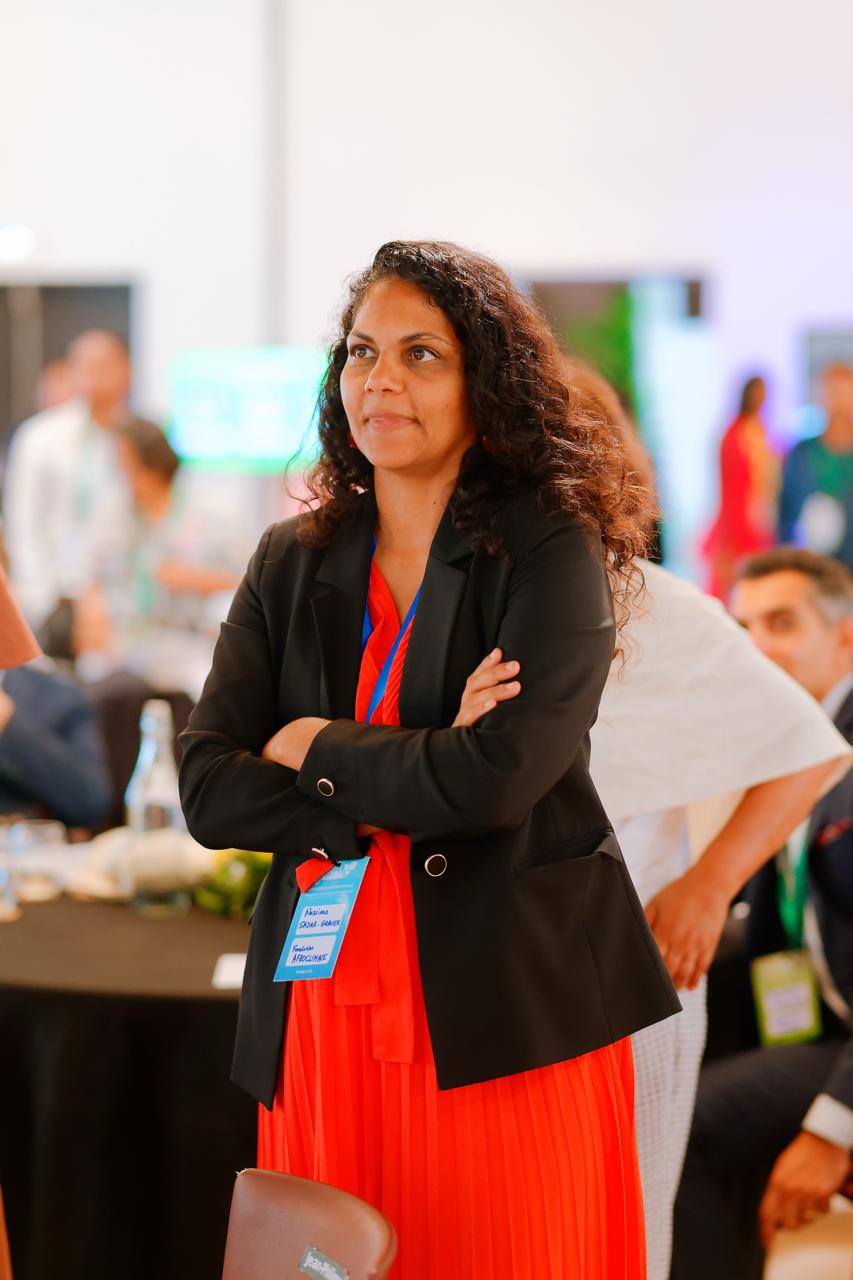The broader the impact of my goal, the more successful I consider myself.
With Emily Otali, what you see is what you get. And you get a straight-talking go-getter whose clarity of vision has seen her shatter more than one glass ceiling.
The Field Director of the Kibale Chimpanzee Project heads a team that collects long-term data on chimpanzee behaviour.
She is also a Co-Director of the Kibale Snare Removal Project, where she works with a dedicated team to ensure the safety of animals in the park by removing snares from the forest and apprehending poachers in collaboration with the Uganda Wildlife Authority.
Further, Emily is the Country Director of the Kibale Forest Schools Program, a locally based non-governmental organisation whose mission is to conserve Kibale National Park through programs that support education, health, and the environment. She mentors the project's 80+ scholars and guides them in their career choices.
The Women for Environment Africa 2022 fellow shares insights from her journey with Damaris Agweyu.

Emily, you were the first African woman to get a PhD in primatology. That's quite an achievement.
Thank you. However, becoming the first woman in my sub-county to get a degree was a more significant achievement.
Why?
It was deeply meaningful and had a greater impact at the foundational level.
In my village, it's believed that a girl should be married and start bearing children by the time she is 14. That if you educate girls, they'll become prostitutes. The elders kept urging my dad to play by this rule, and I think he secretly wanted to. Except in my case, there were no breasts at 14. So he thought, which man would want her? That's a story he would later tell me.
And as I was performing well in school, he allowed me to continue my education even when my body started developing. But people were getting increasingly upset. It bothered them that I didn’t have a child. As I grew older, they settled on one of two explanations: either I’d had an abortion, or there was something seriously wrong with me.
What was that like? Being ostracised at such a young age?
Whenever I did something different from the norm, my dad would complain to my brother, who was the apple of his eye. My brother would tell him to “just let me be”. And so they just let me be.
In retrospect, I feel like I went through life alone. The women who needed to be there for me were not. It makes me sad, and I would hate to see another girl go through what I did. I have vowed to be different with my daughters, nieces, and other young women coming after me—an open door they can walk through and share their problems and joys; because we're in this together.
When did you know that you wanted to work with animals?
From the age of nine. My dad, however, wanted me to become a teacher. I was a naughty student and had no desire to teach anybody like me. Dad was upset. Why hadn’t the university accepted me for an education degree? I said I didn't know. But secretly, I did. It was because I never applied to become a teacher in the first place.
I have always loved being around animals. As a child, I spent a lot of time around our farm animals. I was told I'd make a great vet.
Going to university, I had excellent grades in the sciences, and dentistry sounded like prestigious work. Thankfully I didn't qualify for this and was called to study zoology. I felt misplaced—like I'd failed by not following my original plan of becoming a vet.
After I graduated, I went to work as a research assistant for a PhD student who was studying banded mongooses. As I spent time in the wild, watching these animals and dodging lions and elephants, I thought, yes, this is precisely where I need to be. I didn't want to treat animals. I wanted to study their behaviour and understand their habitats.
Let's talk about how you became the first African woman to get a PhD in primatology.
Uganda is one of the big habitat countries for primates. And for the longest time, only one professor had studied them. While pursuing my Master's degree in Zoology at Makerere University, I was told about an organisation looking to fund the development of primatology in the country. I submitted my application. The same person who told me about this opportunity felt the need to mention that I may not make it. He said walking in the forest would be strenuous. That I'd miss my boyfriend. I didn't even have a boyfriend then, so I wondered where he was getting his information.
I got into the program, and the university assigned me a primate to study: the blue monkey. The funding was for only two years, not enough time to habituate these primates. I shared my reservations with my professor, who agreed. I would need more time for blue monkeys. We zeroed in on another option. Chimpanzees.
The doubts and questions came flooding in. In my mind, Jane Goodall had said just about all there was to say about chimpanzees. Was there anything left to be said? This was going to be hard work. Still, I forged through my two years of fieldwork. I didn't want to prove the naysayers right.
After graduating, I planned to settle in Scotland with the man I thought would become my husband. But I am grateful that I didn't because following my "Scottish divorce", I returned to Uganda and have been working with the Kibale Chimpanzee project since 2005.
"Scottish divorce?"
While doing my PhD, I had been dating a Scottish guy. I thought we would get married, so I went to Scotland immediately after graduation. We had been together for eight years. I wanted kids. He didn't. Still, I followed him to Scotland because I loved him. While we were there, his mum revealed a shocker. He had gotten a vasectomy. This changed everything. I told him I didn't want to end up hating him for not giving me the thing I wanted so badly.
I wanted to return home but didn’t have the money, or a job. I emailed my supervisor, who told me that a field director of a particular project had been fired. Could I run the project for a while as I settle back home? It was a no-brainer. I packed my bags and took the next flight to Uganda.
Initially, there was some resistance to my presence at the organisation. Some dodgy people who had been running the conservation arm of the project wanted to avoid being exposed. But it was inevitable. Eventually, the entire board was dissolved, and I came in as a director. Until then, they had only had white country directors. And then, they realised it was much easier to work with the black country director because of acceptance from the community. So they hired me.
And you ended up getting the children you so badly wanted.
I ended up marrying my college sweetheart and best friend and having two children with him. It was a long, convoluted journey where we met while I was at university, went our separate ways and found each other again. Counting the three children from his previous marriage, I am a mother of five.
Becoming a new mum was challenging. It was tough when I had my first baby because my employer didn't want to deal with the complications that come with that. I threatened to leave. They tried to hire other people, but it didn't work out, so they decided to work around me and my reproductive life. As my children approached their school-going years, I wanted to take them to Kampala, where they would get a decent education. It meant I had to spend more time away from work, and again; my employers were uncomfortable. Again I was adamant. And again we found a way to work around my children's education.
How would those closest to you describe you?
Passionate. I won't tip-toe around the things that matter.
Your passion for chimpanzees is palpable. When did you first fall in love?
While exploring the idea of studying chimps, I didn't think I would love them as much as I loved mongooses. My first formal introduction was through a documentary for National Geographic. We went to the forest, and I was repeatedly told not to make eye contact with the chimpanzees. But that was the first thing I did. And I fell in love.
I realised that, like mongooses, chimps have personalities. In studying them for two years, my love for them grew. I've learned that the behaviouralist in me can get the same joy from elephants that I get from chimpanzees and mongooses. Heck, give me lions. As long as they have personalities, you can count me in.
How has the WE Africa journey impacted you as a leader?
One of the greatest joys of being in this fellowship is forming bonds with other female leaders in the conservation space. My passion is studying animal behaviour. No one prepared me to lead people in an organisation. This was the first leadership training I had ever done, and it was comforting to be guided and learn that some of my mistakes were not unique to me.
And that comfort permitted me to open up. When you've carried a lot of crap on your own, you think you're tough and cool—sharing things I've buried for years with my fellow sisters and coach has been liberating.
Knowing what you know now, what advice would you give to the 14-year-old Emily, who felt so alone in her journey?
I would tell her it's going to be OK. Just keep following your heart. Everything you want in life will be yours. You'll get there. The women in my life may not have been there when I needed them, but I will be there for those who need me.
A wonderful girl came to work at our organisation as an intern. After completing the internship, she knew that this was the work she wanted to do. She came back to work for us and is now our field manager. I'm there for her 100%. My children think she's my sister. I'm so involved that I constantly check with her if I'm intruding.
And especially in the conservation space, where we have very few women in leadership positions, we must be available for each other.
How do you define success?
The simple version is setting a goal and achieving it. When I achieve what I have set out to do, no matter how small, I define that as success.
And the complex version?
How does that goal impact other people? Going back to the simple definition, if I want to buy a car, for example, and save my money and buy it, I'll have succeeded. But if this car helps my family or friends achieve their goals or makes their lives easier, that is a more remarkable measure of success. The broader the impact of my goal, the more successful I consider myself.
***
This interview is part of a series profiling the stories of the 2022 WE Africa leadership programme fellows, African women in the environmental conservation sector who are showing up with a strong back, soft front, and wild heart.




